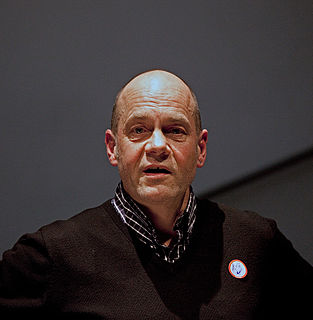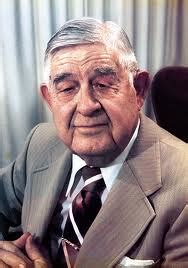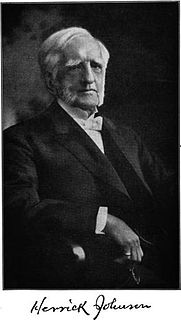A Quote by Douglas Groothuis
The doctrine of hell does not stand alone as a kind of ancient Christian horror story. Rather, hell is inseparable from three other interrelated biblical truths: human sin, God's holiness, and the cross of Christ.
Related Quotes
Only at the cross of Christ does man see fully what it is that separates him from God; yet it is here alone that he perceives that he is no longer separated from God. Nowehere else does the inviolable holiness of God, the impossibility of overlooking the guilt of man stand out more plainly; but nowhere else does the limitless mercy of God, which utterly transcends all human standards, stand out more clearly and plainly.
I'm a very controversial figure in the Christian world. I don't believe if you're gay or you have a drink or you dance, you're going to hell. I don't think that's the kind of God we have. The Pat Robertsons and Jerry Falwells of the world are scary. I want to be a Christian like Christ - loving and accepting of other people.
Wrath, unlike love, is not one of the intrinsic perfections of God. Rather, it is a function of God's holiness against sin. Where there is no sin, there is no wrath-but there will always be love in God. Where God in His holiness confronts His image-bearers in their rebellion, there must be wrath, or God is not the jealous God He claims to be, and His holiness is impugned. The price of diluting God's wrath is diminishing God's holiness.
This, then, is the foundation of sanctification in Reformed theology. It is rooted, not in humanity and their achievement of holiness or sanctification, but in what God has done in Christ, and for us in union with him. Rather than view Christians first and foremost in the microcosmic context of their own progress, the Reformed doctrine first of all sets them in the macrocosm of God's activity in redemptive history. It is seeing oneself in this context that enables the individual Christian to grow in true holiness.
Dear lost sinner, if you are a wicked sinner, yet you do not have to die and go to Hell forever. If you are a criminal or a harlot, a blasphemer, a drunkard, a convict, or a dope fiend, God does not want you to go to Hell. People do not go to Hell simply because they are sinners. Rather they go because they will not repent of their sins! If you today will confess your sins to God, and in your poor, helpless heart, will, as far as you know how, turn away from your sin, God will have mercy and will forgive and save.
...God has made provision for our holiness. Through Christ He has delivered us from sin's reign so that we now can resist sin. But the responsibility for resisting is ours. God does not do that for us. To confuse the potential for resisting (which God provided) with the responsibility for resisting (which is ours) is to court disaster in our pursuit of holiness.
Those who understand the cross increasingly see their sin as God does, and therefore begin to feelabout sin as does God. We begin to mourn for and hate it. In other words, at the cross God becomes larger and we become smaller. This separation is at the heart of the fear of God. This "fear" opens God's wisdom to us because only in light of God's immensity can I see the importance of living for the right end, his glory. And only in the light of my smallness can I feel overawed by the means he used to save me, his cross.
When people use the word hell, what do they mean? They mean a place, an event, a situation absent of how God desires things to be. Famine, debt, oppression, loneliness, despair, death, slaughter--they are all hell on earth. Jesus' desire for his followers is that they live in such a way that they bring heaven to earth. What's disturbing is when people talk more about hell after this life than they do about Hell here and now. As a Christian, I want to do what I can to resist hell coming to earth.
A lot of people say, well how can a loving God send anyone to hell? First of all God doesn't send anyone to hell. If we go to hell, it's by our own choice. But when somebody says to me, how can a loving God allow anyone to go to hell, I'll turn around and say, "Well how can a holy, just, righteous God allow sin into His presence?"
































